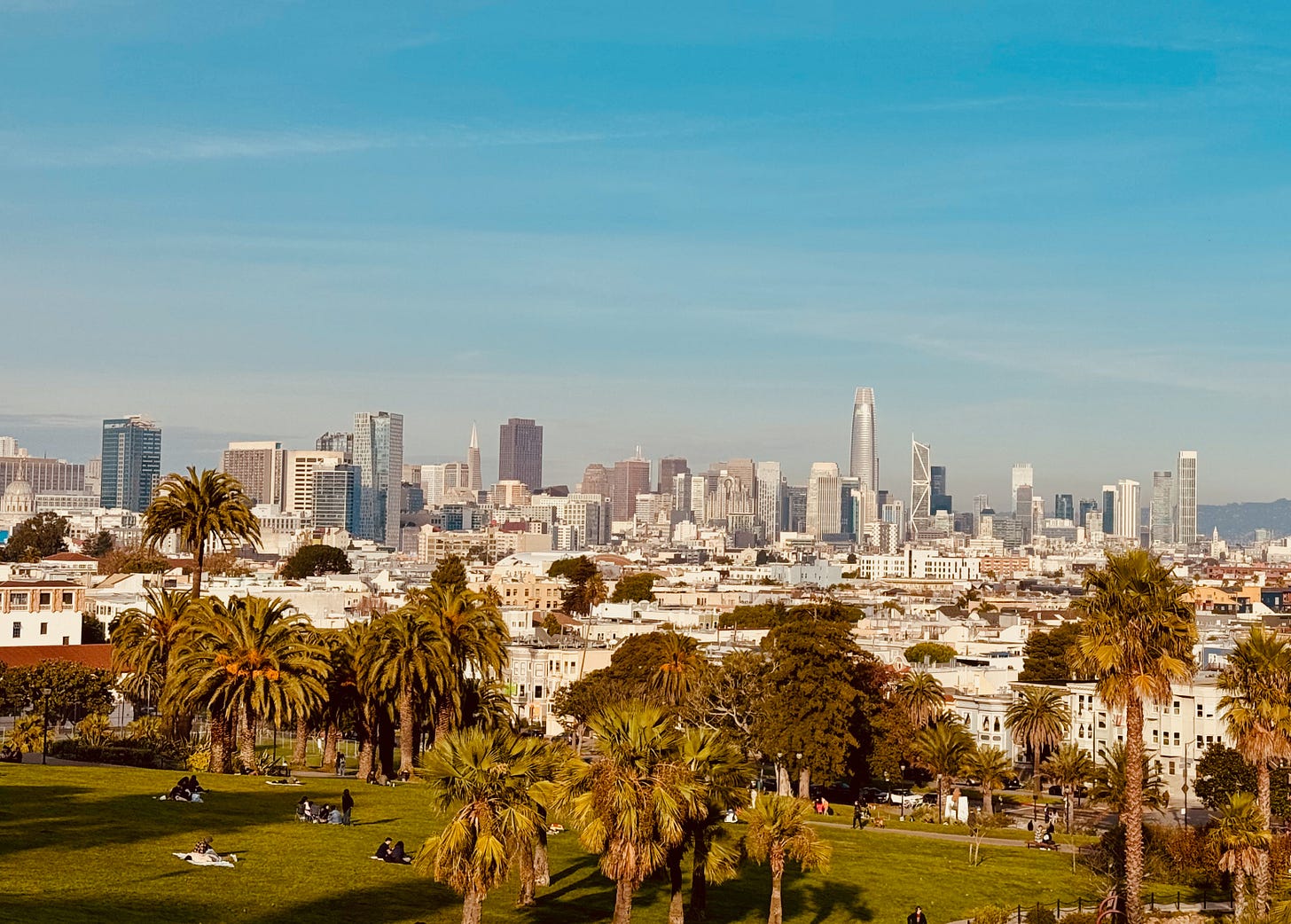Someone once told me that I'm a romantic person pretending to be analytical. This made me smile, and although most of my writing does lean in the poetic direction, to satisfy my ego I have to balance the scales every so often with some cold, hard, cruel analysis. In this post I argue that loneliness is a skill issue.
I meet a lot of people in the city who are quick to point out that forming deep and lasting connections is extremely challenging. They then choose a few of the following talking points: modern society encourages people to move away from their family and childhood friends, promotes self-reliance, separates people into individual housing, lacks public gathering spaces, forces people to spend most of their time working, and distracts everyone with enough on-demand entertainment that nobody feels motivated enough to fix the situation. The next sentence after these arguments are presented is as often as not "I'm leaving (SF|New York) for (New York|SF)."
I agree that the effects listed above are real; certainly, people are incentivized to move to larger cities; certainly, there are few high-quality indoor public spaces; and certainly, entertainment has an anesthetic or palliative effect that dulls the pangs of loneliness. But I argue that the root cause of the struggle to find social connection is different.
Humans seem to use many different heuristics to estimate how much social value another person can provide. Physical attractiveness and fitness are obvious factors. Others include a sense of humor, empathy and kindness, wealth, ability to pay close attention to others, calmness, career success, ability to host events, having unusual life experiences or skills, being well-connected, knowing how to cook, knowing how to be silly, and owning a car. I think when people say they're having trouble forming close friendships, the subtext is usually "I'm having trouble forming close friendships with valuable people." Of course, saying this is incredibly crass, so some word like "interesting" is always substituted for "valuable."1
But as a result of the Internet, high-value players can now build large audiences, filter through huge quantities of inbound interest, and be extremely selective about who they choose to associate with. Just as capital markets produce billionaires, social markets create similarly anomalous individuals. And since attention from others has a fixed supply2, the presence of advanced, strategic players has an incredibly punishing effect on people using pre-Internet strategies. If the person employing the obsolete strategy is exceptionally valuable—success is still quite likely. Of course, the majority of people cannot be in the top five or ten percent.3
A corollary is that attempts to "build community" without some other centralizing purpose tend to struggle and falter, because normal people often show up looking to catch legendary Pokémon rather than talk to each other.4 Unfortunately, legendary Pokémon don’t need to build community.
One redeeming quality of this whole situation is that you can become more valuable in certain dimensions through effort, and you can devise far better strategies than going to meetups with strangers or trying to build community. It does make me sad, though, that our society has stripped the innocence from both friendship and love.
Thank you for subscribing to my electronic attention capture and self-aggrandizement mechanism. Please share it with your friends.
Even if your response to this is a vehement no, this is not me, I don’t discriminate on value—you probably do without realizing it; and even if, somehow, you don’t—the counterparty probably does.
at least, much more so than material wealth
I think this entire post applies to online dating as well, but I stopped using dating apps years ago because they had the odd side effect of making me hate myself and everybody else on the planet
For the same reason, conversations at parties can sometimes feel like interviews. Whenever I realize that this is happening I usually get flustered and fail.



I think this overstates the degree to which we find our friendships on the internet
Ahh, this is great and obvious-in-retrospect, I'm never going to see loneliness discourse the same way again.